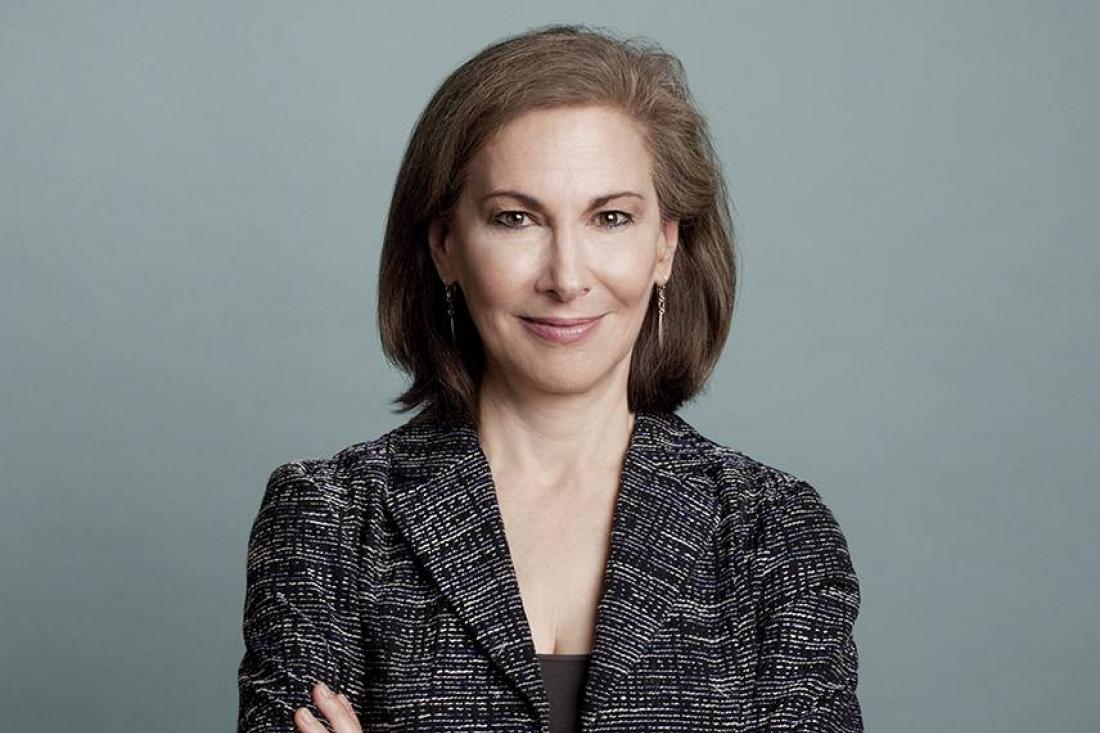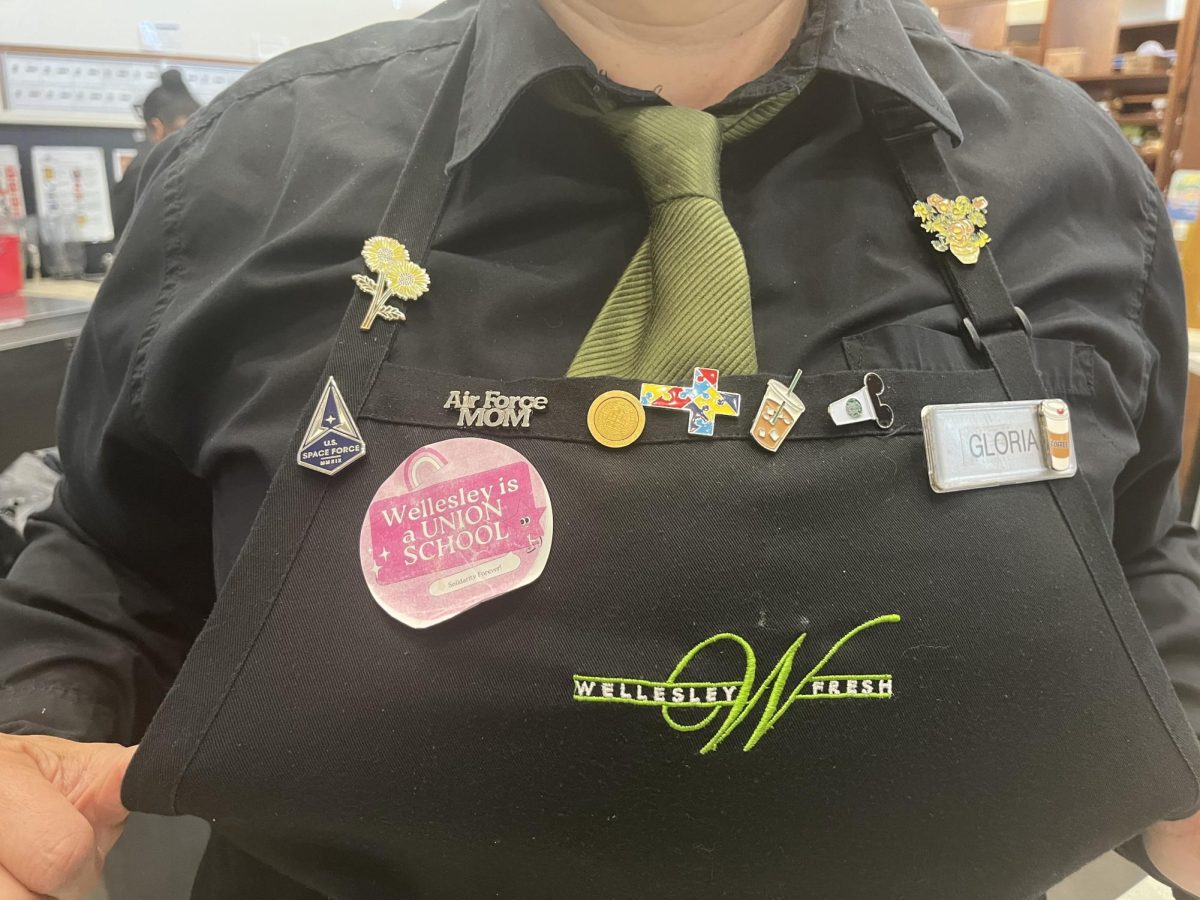Student groups respond to speaker by teaching debate skills, holding safe space for surviors
Two years ago, when the Freedom Project — the Koch-money backed effort to bring “promotion of freedom of expression, pluralism and tolerance on campus and in the greater world” to Wellesley — brought speaker Laura Kipnis to campus, student groups were outraged. Kipnis’ work suggests that Title IX is disempowering to women and questions the validity of sexual assault claims. Many students felt that Kipnis was a damaging, hurtful speaker to have on campus. The group Students Against Sexual Assault for Everyone (SAAFE) released a video called “Shutting down Bullshit with SAAFE” to help debunk what Kipnis said. The event drew news coverage from many major outlets.
This year, the Freedom Project brought another speaker to discuss the hot-button issue of sexual assault. Emily Yoffe, a Wellesley alumna from the class of ’77, came to campus to give a lecture titled “Title IX and the Disempowerment of Women.” Yoffe is a journalist and a contributing editor for The Atlantic. In 2017, she wrote a three-part series that was published in The Atlantic that criticized aspects of campus sexual assault policy titled “The Uncomfortable Truth About Campus Rape Policy.” This past October, she wrote a piece responding to the Brett Kavanaugh hearings titled “The Problem with #BelieveSurvivors.”
Freedom Project Director Kathryn Lynch said that the organization invited Yoffe to speak several months before the Brett Kavanaugh hearings took place. She shared that members of the Freedom Project thought Yoffe would be a valuable speaker because she has “written with care and intelligence on questions of Title IX, which is an important issue on college campuses.” She added, “We also thought it would be a great opportunity for students to hear from someone who went to the College and who has had a really distinguished career as a journalist.”
Like several past Freedom Project Lectures, Yoffe’s talk was the subject of student backlash before it even took place. Becca Pachl ’20 published an editorial in the Wellesley News titled, “Title IX protects those who Emily Yoffe and Wellesley College disempower.” The piece criticized several of Yoffe’s writings as well as Wellesley’s administration for allowing a talk to take place on campus that would “invalidate sexual violence and its harrowing effects on survivors.” This op-ed was shared widely online by students and alumae of Wellesley who disagreed with Yoffe’s assertions.
Pachl was not alone in her concern over the effects the talk could have on survivors of sexual assault. Esther Jaffee ’19, a respected leader on campus and a professional debate coach, held a seminar on how to debate controversial speakers an hour before the Freedom Project event took place, to allow students a way of engaging productively with such speakers. Additionally, SAAFE held an event titled “A Night Off,” which took place at the same time as the Yoffe talk.
Students learn debate tactics in Esther Jaffee’s ’19 seminar
Esther Jaffee ’19, a professional debate coach, offered to hold an alternative event for students who might feel that they cannot adequately stand up to debate those who invalidate the trauma they might have experienced.
“I held the event because I think the best way to build power within Wellesley communities to address controversial and traumatic topics is to go straight to skillbuilding rather than putting people in a potentially retraumatizing situation without preparation,” Jaffee said. “It strikes me as a tremendous cruelty to survivors to frame listening for an hour to the person actively facilitating your dehumanization as the best way to prepare each other to encounter and push back against this dehumanization outside of Wellesley’s campus.”
By teaching students tactics for identifying and responding to bad-faith arguments, disengaging from a conversation and finding out what others are basing their arguments on, Jaffee hoped to give the students who chose to attend her seminar a chance to fight back. “I think people should be able to represent themselves and their experiences fairly, accurately and in such a way that they leave painful and difficult conversations feeling like they’ve done themselves and their communities justice,” she said. “I hoped, with this event, to help participants feel less alone and more empowered in an environment where many people and organizations have and continue to act to disempower them.”
Danielle Pergola ’21 was one of the students who attended Jaffee’s event. “I really enjoyed it. It kind of felt like a community … the event itself wasn’t explicitly against the Freedom Project event, but that’s what it ended up being,” she said. Jaffe taught students to identify arguments that might be based on flawed logic, as she asserted Yoffe’s were. One example was Yoffe’s assertion that Title IX unfairly demonizes men of color — Jaffee suggested that students ask whether that was an issue caused by Title IX, or an issue with our judicial system as a whole.
Pergola says that Jaffee’s event taught her to stand up to people given platforms to speak like Yoffe. “It was a really nice experience,” she said, “because I would say that most of what the Freedom Project is doing as an organization is engaging in bad faith arguments to be intentionally provocative. So I think going and hearing from Esther how to identify something as a bad faith argument and when to disengage, I think that was really helpful.”
Emily Yoffe’s Talk: Freedom Project Speaker Claims Title IX Disempowers Women
On Nov. 14, approximately 80 people gathered in the Library Lecture Room to hear Yoffe’s talk titled “Title IX and the Disempowerment of Women.” Angela Coco ’19, the president of the Wellesley College Pre-Law Society and a former Freedom Project fellow, was one of the many students at the talk. Coco shared that she attended the event in part because of the criticism it was receiving.
“I attended the talk after hearing and seeing some of the bad press it was getting. I had no history with [Yoffe’s] background, but I am a firm believer in free speech, and I don’t believe anyone should be discredited or discounted before they have the opportunity to share what they believe,” she said.
The talk itself touched on many of the points Yoffe raised in her three-part series on campus sexual assault. She criticized current Title IX laws for denying the accused proper due process and for disproportionately affecting men of color.
In several parts of the talk, Yoffe strayed from the issue of sexual assault on college campuses and extended the conversation to the unintended consequences of the Me Too movement on society as a whole. While Yoffee feels that women have made significant advancements in the workplace in recent years, she worries that the current media attention surrounding sexual harassment could serve to disadvantage them. She suggested that men in the professional sphere are becoming fearful of doing things with women that they regularly do with their male counterparts, including speaking to them behind closed doors or sharing cars with them on business trips.
Coco shared that she agreed with some of the points Yoffe made in this section of her talk. “I had a very positive response to her stance on vigilante feminism. I agree that it has the potential to limit women in the workforce and makes men fearful and less likely to entertain even professional relationships with women,” Coco shared.
Yoffe also argued that positive consent movements at universities have led women to claim they were sexually assaulted when their experiences were not entirely pleasurable. Coco felt this claim was “absolutely baseless” on the grounds that there is “no statistics and no data” to support it.
Lynch felt that the question and answer session that was held after Yoffe finished speaking was one of the best parts of the event. She stated, “When [the Freedom Project] invites people to campus who we know a lot of students aren’t going to agree with, what we want is for people to read what they’ve written, think about it carefully and critically and then bring really hard questions to the talks.”
She was particularly impressed with a question Freedom Project Fellow Virginia Faust ’20 raised. Faust asked Yoffe multiple times for an objective definition of sexual harassment. Yoffe’s response was that sexual harassment can be identified according to a “reasonable person” standard.
Lynch said, “I thought that was a good question for someone to ask. It is important to talk about how sexual harassment and our responses to it actually work and not to be totally on the plane of theory.”
Faust shared that she asked the question because at a Freedom Project Seminar, fellows learned the importance of establishing definitions when having difficult conversations. “Productive discussion and argument is nearly impossible if two people define terms differently,” Faust stated.
Overall, Lynch was pleased with the event. She wants students to understand that, “[Yoffe] is not trying to dismiss the concerns of people who have suffered sexual assault or say that this is not a serious or important issue. She also isn’t saying that we haven’t made huge strides of progress in improving the environment for women or made it less likely that they will have to endure inappropriate conduct.” Lynch continued, “I think [Yoffe] is just concerned with some of the unintended consequences of pushing those ideas so far that they start to encroach on other rights, like the rights of accused people to have the charges against them be fairly tried.”
SAAFE Holds “A Night Off”
Jaffe’s seminar was not the only student-run event held on the night of the Freedom Project lecture. Members of SAAFE invited survivors and allies to join them in the Claflin basement for “A Night Off,” which was held at the exact same time as Yoffe’s talk. The event was part of a larger “Love Your Body Week” that was organized by SAAFE and three other student groups on campus. Representatives of SAAFE could not be reached for comment, and therefore neither confirmed nor denied whether they purposefully scheduled their event on the same night as the Freedom Project lecture.
According to an all-school email sent by a member of SAAFE, “A Night Off” provided survivors and allies with a space to “spend time together in community relaxing, crafting and playing games.”
Pergola said that events like SAAFE’s and Jaffee’s are critical responses to Yoffe’s event. “I think it was important because sometimes it can be really really frustrating to know what the Freedom Project’s doing and not really know how to engage with it, or to know even whether you should engage with it. So it was really informative about things like that, which extends beyond the Freedom Project.”






